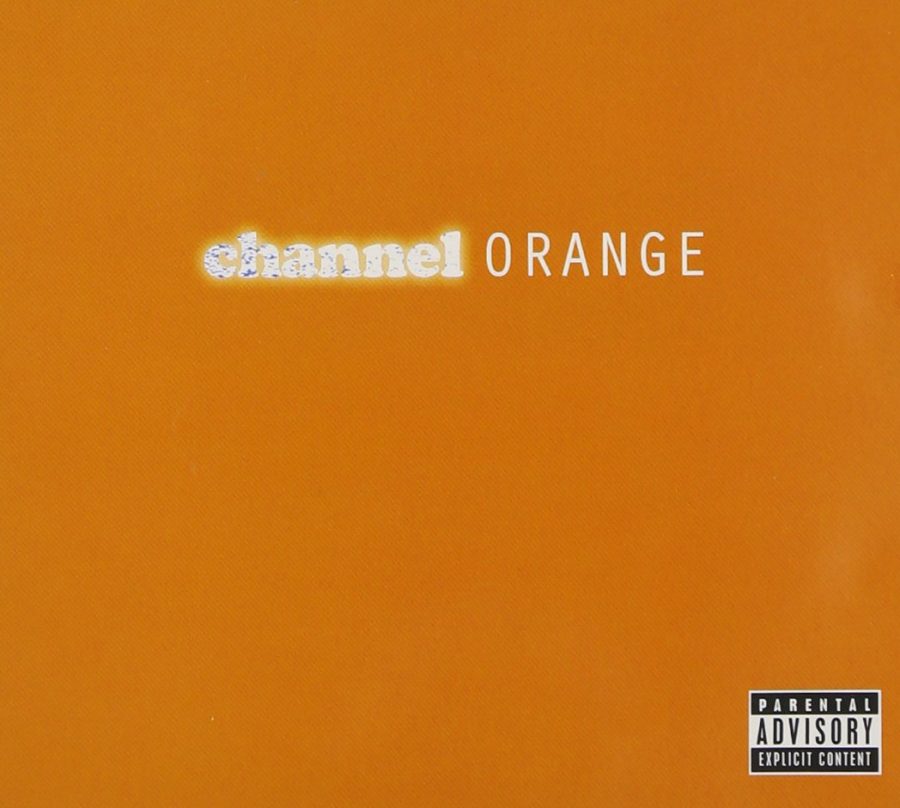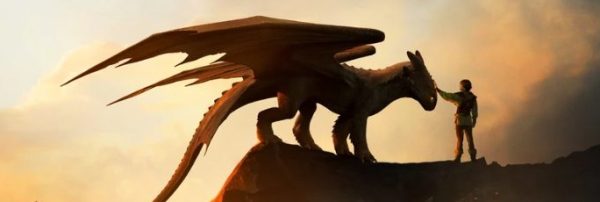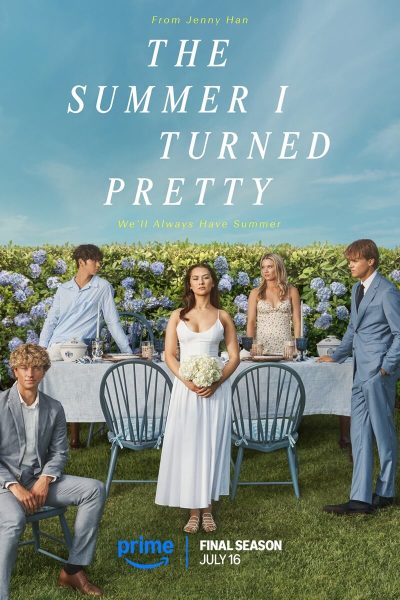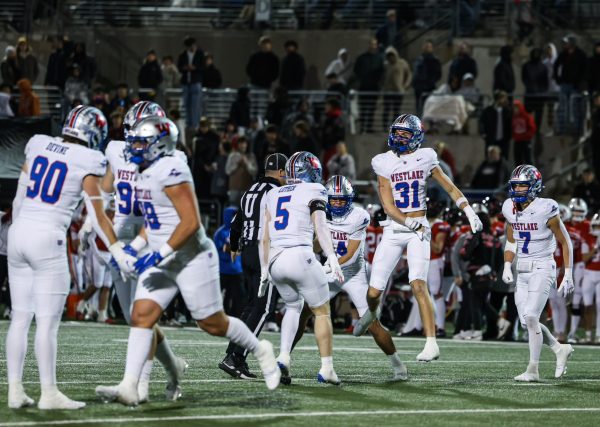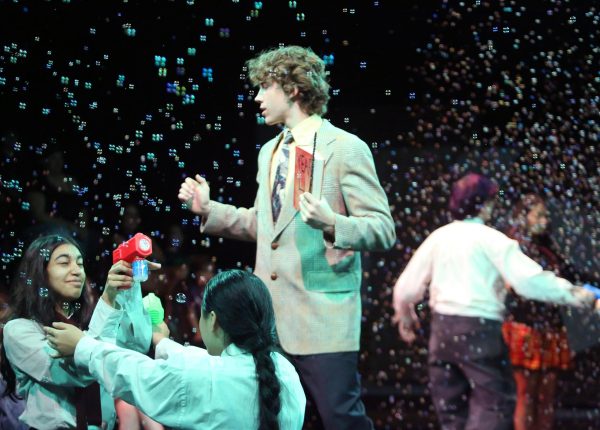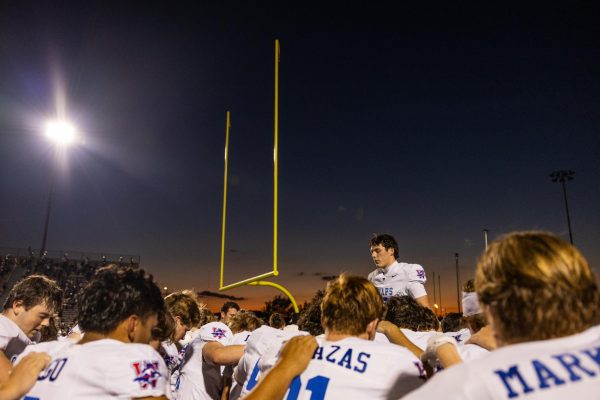10 years of Frank Ocean’s Channel Orange
Ever since Frank Ocean first came into the R&B scene in the early 2010s, he was labeled as a breath of fresh air from the commercial-influenced sound that dominated the genre, resulting from desperate attempts to appease radio listeners. After releasing his debut mixtape, Nostalgia, Ultra, in 2011, he gained substantial traction as a solo artist thanks to his songwriting and adventurous take on R&B that came across as experimental. This initial success allowed him to collaborate with some of the most established artists in the world at the time, such as Beyonce, Jay-Z and Kanye West. It also eventually led to his debut album, Channel Orange, releasing July 10, 2012. Despite dropping over a decade ago, Channel Orange found itself ranked 65th on Billboard’s Top 200 chart during January, its highest peak since 2016.
This spike in popularity is due to the track “Lost” finding success on TikTok, boosting its streaming numbers on Spotify and Apple Music. It’s also the album’s highest ranking since 2016, just four years after it debuted at #2 on Billboard’s Top 200, with standout track “Thinkin Bout You” being the lead single for the record and becoming its best performing song.
Frank Ocean uses Channel Orange to tell experiences from the perspective of a variety of characters he created. This is accomplished through use of a sequencing style that is as unique as you can find in music. From the perspective of the album, these stories are episodes of different shows, encapsulated by the aesthetic of a TV channel. He accomplishes this by including interludes such as “Fertilizer,” a catchy jingle meant to mock an old-fashion commercial. You can also hear sounds of a remote being clicked at the end of different songs, changing the channel on the TV. This marks a shift in themes between different segmented song runs.
The record is split into three main sections, the first of which includes tracks “Sierra Leone,” “Sweet Life” and “Super Rich Kids,” where we get a glimpse into the lives of people with immense wealth at their disposal. “Super Rich Kids” delves into the depressing side of being a teen born into money. The absence of parents, easy access to alcohol and drugs at a young age and the emptiness that comes with having anything you could imagine without working for any of it. This is all expressed in an ungrateful tone from the perspective of the teen, sung in a melancholy nature surrounded by rich horns and pianos. Earl Sweatshirt also delivers with a fitting feature that matches the same energy that Frank Ocean brought.
Our next run of songs include “Pilot Jones,” “Crack Rock,” “Lost” and “Pyramids,” all of which are primarily based on different love interests. The first three tracks show the impact that drugs had in each character’s love life. “Pilot Jones” contains the catchiest hook of the album in my opinion and tells the story of a girlfriend who suffers with drug abuse, slowly pulling the narrator to indulge in her same habits. By the end of the song, they’re both addicted to their unhealthy love. “Lost” follows a similar concept as “Pilot Jones” and is the closest Frank has been to making a pop song. Behind the infectious production and satisfying drums, he tells a unique story of a man using his girlfriend to sell contraband. He knows he’s taking advantage of his love interest and claims to put an end to it soon but never pulls the plug on the operation until the two split up.
What I believe to be the best song on Channel Orange (and one of the best R&B tracks in recent memory), “Pyramids” is just short of ten minutes and doesn’t waste any of its runtime. It’s split into two parts, separated by a seamless transition and made up of distinct and rewarding production. The first half is loaded with synthesizers that climb and fall to mirror pyramids, accompanied by stunning vocals. It accumulates to make an electric and raw sound that fades into the soothing second half where the song fully hits its stride. The synths are scaled back and the beat is simplified to shine more light on Frank’s voice as he compares a relationship to ancient Egypt. We’re put in the shoes of an unemployed man who lives entirely off his girlfriend and believes he doesn’t deserve her, but they’re both devoted to each other. This follows Frank’s retelling of Cleopatra becoming the mistress of Mark Antony, a Roman conqueror who set out to capture Egypt during her reign, bringing dishonor to her name and stripping her kingdom from her. It’s one of the most creative metaphors I’ve seen in a song and makes reference to a historical event that many people were unaware of.
Finally, the third section of songs is a collection of “Monks,” “Bad Religion,” “Pink Matter” and “Forrest Gump,” some of the most personal tracks on the album, all sharing philosophical subject matters. “Monks” and “Bad Religion” tackle Ocean’s experiences with religion, with the latter taking a much more sincere and profound approach. Another highlight of the tracklist, “Pink Matter” is full of emotion, and it feels like the listener is in Frank’s head as he is deep in thought. André 3000 reminisces about a past relationship on his feature and also supplies the song with a satisfying outro following a memorable electric guitar solo. This leads into the album’s final track, “Forrest Gump,” where Ocean compares his first love to the famous movie character. It’s incredibly catchy and I always come back to its upbeat production.
It’s difficult to find areas of this album I have problems with. There’s no “weakest link” when it comes to the tracklist and doesn’t lean on R&B clichés like other albums that have flourished in the genre. Its strongpoint is its storytelling, with the unique experiences of the album’s characters and the creative ways they unfold. The attention to detail and exceptional vocal performances also went a long way. Frank Ocean proved he was capable of being an extraordinary artist by making a classic as his debut release.

